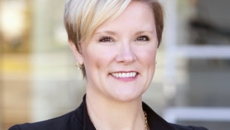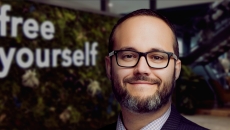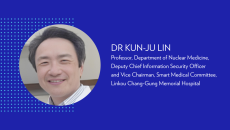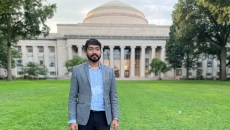Artificial Intelligence
Julie Eastman, RN, has been associate chief information officer at the Orange County health system for the past 18 months. With the promotion, she'll supervise IT operations and lead efforts on telecom, biomedical engineering and more.
Health systems able to offer this will not only be better positioned to survive external pressures, says one artificial intelligence expert, but will also help set the bar for critical best practices for future patient-provider relationships.
SPONSORED
Healthcare organizations need a strong cyber threat intelligence program to understand risk and harden their security posture.
The use of voice interfaces to follow up with discharged patients at home can extend care and reduce readmissions, said Freddie Feldman, director of voice and conversational interfaces at Wolters Kluwer.
This HIMSS23 APAC speaker will share how Taiwan’s Chang Gung Memorial Hospital transformed into a leading data-driven smart hospital.
The private network, powered by Verizon, will enable 3D X-ray vision, augmented and virtual reality, digital twins and other data-intensive clinical innovations for veterans.
Also: U.K.-based Preventx announces a new Cincinnati lab offering remote STI testing to help American public health agencies manage the challenges of hard-to-reach populations.
SPONSORED
Move beyond PACS-based strategies to leverage cloud capabilities.
Dhruv Suyamprakasam, leader of a virtual healthcare company, discusses why he believes ChatGPT enhances productivity for providers of virtual and in-person care.
The prospect of LLMs filling gaps in data and generating insights based on what's missing has huge potential, says Payel Das, principal research staff member and manager in the Trusted AI department of IBM.











